- News
- Reviews
- Bikes
- Accessories
- Accessories - misc
- Computer mounts
- Bags
- Bar ends
- Bike bags & cases
- Bottle cages
- Bottles
- Cameras
- Car racks
- Child seats
- Computers
- Glasses
- GPS units
- Helmets
- Lights - front
- Lights - rear
- Lights - sets
- Locks
- Mirrors
- Mudguards
- Racks
- Pumps & CO2 inflators
- Puncture kits
- Reflectives
- Smart watches
- Stands and racks
- Trailers
- Clothing
- Components
- Bar tape & grips
- Bottom brackets
- Brake & gear cables
- Brake & STI levers
- Brake pads & spares
- Brakes
- Cassettes & freewheels
- Chains
- Chainsets & chainrings
- Derailleurs - front
- Derailleurs - rear
- Forks
- Gear levers & shifters
- Groupsets
- Handlebars & extensions
- Headsets
- Hubs
- Inner tubes
- Pedals
- Quick releases & skewers
- Saddles
- Seatposts
- Stems
- Wheels
- Tyres
- Health, fitness and nutrition
- Tools and workshop
- Miscellaneous
- Tubeless valves
- Buyers Guides
- Features
- Forum
- Recommends
- Podcast
£209.00
VERDICT:
A very good cycling computer on the bike, but the apps could do with some tweaks to make them easier to navigate
Weight:
116g
Contact:
At road.cc every product is thoroughly tested for as long as it takes to get a proper insight into how well it works. Our reviewers are experienced cyclists that we trust to be objective. While we strive to ensure that opinions expressed are backed up by facts, reviews are by their nature an informed opinion, not a definitive verdict. We don't intentionally try to break anything (except locks) but we do try to look for weak points in any design. The overall score is not just an average of the other scores: it reflects both a product's function and value – with value determined by how a product compares with items of similar spec, quality, and price.
What the road.cc scores meanGood scores are more common than bad, because fortunately good products are more common than bad.
- Exceptional
- Excellent
- Very Good
- Good
- Quite good
- Average
- Not so good
- Poor
- Bad
- Appalling
The Stages Dash M50 Head Unit is a powerful, clear cycling computer that looks good and is easy to use on the bike, but could do with some improvements when you're off it.
- Pros: Clear display, simple to set up, easy to use on the bike
- Cons: Apps are confusing, some basic functions missing
Stages has become synonymous with pro cycling in recent years, with many teams in the pro peloton using its trademark landscape head units. This new M50 head unit is more consumer-focused, but with the pedigree of the pros feeding down into it.
> Find your nearest dealer here
This is most evident with the amount of information you can get from the unit while you're riding, and the way this data is displayed. I found, for instance, that the way it displays power with clear rings and readings was considerably better than other computers which simply show the numbers without more context.
This is certainly helped by the quality of the screen, which rivals recent Garmins in terms of accuracy and crispness. The Stages EverBrite high resolution screen makes readings easy to see and maps easy to follow. I reviewed this unit before and after a firmware update, and one of the slight criticisms I had originally was that direction lines on maps were a little too thin and could be a little difficult to see, but after the update this has been fixed.
The screen itself is 45 x 30mm which isn't as large as others on the market, but more than good enough for everything I've used it for.
Sensors and setup
Pairing sensors is simple and quick. It found my various speed and cadence sensors within around 10 seconds, though it didn't really differentiate between them so both were listed as a 'speed and cadence sensor' despite them being one or the other. This did make the user experience seem a little dated, but was only a minor issue.
You can create new information screens quite easily, allowing you to show dozens of metrics, from power and cadence through to incline and heart rate or turn directions.
In addition to this, you can set different profiles on the computer, each with their own set of information screens. This meant I could quite easily change between my commuting setting, where time and directions were the most important elements, to my weekend rides where heart rate and cadence were my primary concerns.
On these screens you can also include personal information to help your training, with HR Zones, max power and so on, and the computer displays these in a way that helped with training rides better than almost any other computer I've used.
> The stuff they don't tell you about GPS bike computers
It is also simple to move the unit between bikes, as each profile connects with different sensors if necessary. For example, I have a pretty standard speed and cadence sensor on my commuter bike, but I have separate sensors on my weekend bike. The only issue with this is that the unit comes with only one mount, so unless you buy another you need to move the entire thing over.
The only minor downside of the sensors on the unit is that I found they could take up to around a minute to register and begin showing on the computer; not a major issue but just a little quirk.
Mounting
Mounting the unit is simple. It has two slots on the back of the device which you fit onto the mount and click into place either portrait or landscape. It holds the unit securely and I found that throughout the review I had no issues with excess shaking or any signs that it was working loose.
The only slight issue is that the clip is initially pretty stiff and it takes a few rides before it becomes easier to put the unit in place.
Courses, rides and plans
Navigation on the bike is clear and simple. You can upload gpx, fit and tcx files through a USB, and once on the unit they're simple to follow (after the firmware update) thanks to a thick line and well-timed navigation prompts.
You can also upload courses through the online portal or phone app, though this is a little complex and not easy to understand initially, given the number of options you have on both. However, after finding out how to do it (either through the calendar or its own menu), it's a relatively simple process.
Uploading rides is really easy, either by plugging the unit into a laptop via USB or downloading the Stages app and doing it through there.
Another nice element is that it is simple to create custom training plans through the calendar function, either from scratch or by using one of the pre-programmed training schedules for a specific event. However, the app itself is a little limited and doesn't necessarily give you as much information on the fly as either the Wahoo or Garmin versions.
App
The browser app has a huge amount of information on it and means you can dive deep into your activities, data and schedules. It also allows you to connect your app to other services such as Strava or Training Peaks, which happens automatically once you sync the unit to your computer or through the app.
This leads on to the one element of the computer that could do with improvement – the UX, or user experience.
The UX of the computer on the bike is good – it has only four buttons, menus are clear, and different elements are clearly labelled.
However, off the bike I found the app a little confusing. It has a lot of different options, but the primary purpose seems to be to upload rides to the Stages site. Stages uses Mac or PC desktop software called 'Stages Sync' but the only thing it appears to do is update the settings that you've set online or upload rides to the browser app. It would save time and hassle if you could just do this all in one place.
The browser app itself is confusing and takes a lot of getting used to – as I can attest to through the time I spent trying to find how to create a course and upload it. I am sure that if I had a bit more time with the unit I would be able to understand it better, but software needs to be intuitive and it feels like this could do with more tweaks.
> Buyer's Guide: 14 of the best cycling GPS units
Similarly, on the unit itself the majority of the time it's great, but there are some small annoyances like the fact that you can't have it automatically turn off after inactivity. On the browser app you can change hundreds of different settings, but it takes a while to find (they're hidden in a hamburger menu at the edge of the screen) and requires another sync with your laptop to get them onto the computer. These seem small issues but are just a bit annoying; twice during the review I thought I had turned the unit off only to get to it the next day and find that I hadn't and the battery was dead.
Perhaps one of the things that could solve these issues is a more detailed user manual. This is a very powerful unit that can do a huge amount, but because the manual doesn't go into step-by-step detail it's often difficult to find out how to do things.
As I said, though, when I initially received the unit there were a few bugs, but Stages released a firmware update to fix them, which suggests it's aware of the teething issues that technologies often have and is being proactive in fixing them.
Charging and battery life
Battery life is pretty good (when you don't leave it on for 14 hours by mistake!) and I found that I could stick it on my bike on a Monday and only need to charge it again before a long Sunday ride, having ridden for roughly 1.5 hours each day up to that point. This is roughly what Stages claims with 10 hours of real use. Charging is also simple: you can either plug it into the wall or a laptop with the supplied micro USB cable.
Value
Its rrp of £209 is about what I would expect – it's not cheap but not overly expensive either. The Garmin Edge 520 Plus, for example, is £259 and has broadly the same features, although with a more usable app. Spending more, for example £349 on the Sigma Rox 12.0, demonstrates the differences you'd get with a more expensive computer, with a touchscreen and Wifi uploads.
Conclusion
Overall I have mixed feelings about the M50. On the bike it is excellent, with a clear screen, simple navigation and really useful performance information. However, there are some areas that could do with improvement, most notably the user experience on the app and the ability to do basic things like turn off the beeps on the button presses or set an auto turn-off on the unit itself. Stages is clearly updating the unit as it goes, though, so these are hopefully only short-term and the user experience of the app will come to match the great unit it's created.
Verdict
A very good cycling computer on the bike, but the apps could do with some tweaks to make them easier to navigate
road.cc test report
Make and model: Stages Dash M50 Head Unit
Size tested: 58mm screen
Tell us what the product is for and who it's aimed at. What do the manufacturers say about it? How does that compare to your own feelings about it?
A cycle computer that can be used easily enough as a day-to-day computer, but with some of the performance features that we've become accustomed to from Stages.
Stages says: "The Stages Dash M50 GPS bike head unit is the most compact model in the Dash range and has been explicitly designed to help you reach your full potential on every ride, whether you're a first-year rider or a seasoned pro.
With its smart design, intuitive interface and full-colour Everbrite screen, the Dash M50 is unequalled in usability, fully optimised for turn-by-turn navigation and enables you to complete complex training regimes with ease.
Meanwhile, ANT+ and Bluetooth compatibility means you can pair your Dash M50 to almost any power meter or training device, whether you're a Stages Power owner or not.
The M50 sits under the L50 in terms of size, featuring a 2.25" (58mm) screen with up to 12 data fields per screen and up to 12.5 hours real-world runtime with its backlight at 30% screen brightness.
At just 51mm wide and 78mm tall and weighing 94g, it's ideal to slip between triathlon extensions or for those seeking a compact but fully-featured head unit.
USER-FRIENDLY
This latest evolution of Stages' Dash head unit has been developed and constructed primarily to simplify your user experience on the bike. A distilled and fully customisable interface unlocks limitless potential with minimal effort, giving you the freedom to focus your attention on your riding rather than getting bogged down in opaque software.
Stages is deeply conscious of the need for both ease of use and a user experience that precisely matches your personal preferences. The M50 is fully compatible with a wide range of ANT+ and Bluetooth devices, fitness apps and file formats so you can tailor your training, exploration and ride analysis to fit what suits you best.
The M50 also improves upon the original Dash in that it features a dedicated high-resolution colour LCD screen that's fully-optimised for outdoor riding conditions. Whatever the light conditions you can be confident that the display will remain clear thanks to Stages' exclusive Everbrite technology. The unit can be locked into position either landscape or portrait and is firmly secured by a sturdy aluminium mounting system that will remain in place even on the toughest terrain.
BIKE-OPTIMISED NAVIGATION
The M50 unlocks a whole new level of on-bike exploration through its comprehensive and specialised map features. The majority of maps available on the market are based on car travel, however, the M50 utilises cycle-optimised OSM map files which indicate bike paths, dirt tracks and potential hazards.
You can build routes with the all-new Stages Link app, or any other third-party providers including Strava and RidewithGPS. The M50 supports FIT, GPX and TCX file formats giving you a wide variety of options.
With 16GB of base maps preloaded onto each device and free additional regional downloads, you can explore a vast area straight out of the box. The display graphics are suited to all light conditions and ensure that you're always on track with turn-by-turn directions and a colour-coded elevation profile.
INTEGRATED WORKOUTS
The M50 means that you can complete complex and progressive workouts on the bike without having to divert your focus from giving your best ride performance.
Simply follow preloaded workouts on screen or build your own and gain fitness, strength and new levels of riding enjoyment. As you become stronger and fitter with time, the M50 gives you the option to initiate adaptive zones that optimise your workout programmes according to your outputs, so you can concentrate solely on reaching your performance goals.
With dedicated power readings and concise metrics, you can tailor your training programmes to get more out of every single ride. Distilled infographics – such as the colour-coded power gauge – and customised display configurations with up to 16 data fields mean that you can easily monitor your progress on the bike and adjust your output accordingly.
WORKS WITH ANYTHING
Fully future-proofed and able to be synced with a wide variety of devices, the M50 enables you to customise your head unit to display what matters most to you. You can integrate your Di2 or eTap drivetrain with the computer, set up text alerts or control your smart trainer – and as future technologies arrive, you can be confident that these will be synced too.
Whilst the Dash M50 forms part of a truly integrated system with Stages power meters, its compatibility with ANT+ and Bluetooth Smart means it's perfectly poised to sync with other brands' power meters as well as smart trainers, adding to its versatility and giving you the same benefits with your existing components.
The Dash M50 can be set up using either a home computer, mobile app or on the unit itself. Guided walk-throughs enable you to link your M50 with the all-new dedicated Stages Link mobile or desktop apps, which are included with your purchase. You can review your rides, sync workouts and build new courses with minimal fuss while rich data capture enables you to drill deeper into trends so you can get the most out of every ride.
Once your ride's complete, sync via USB or using the Stages Link App, which can also push to Strava, Training Peaks and other third-party training logs."
Tell us some more about the technical aspects of the product?
Stages lists:
High contrast monochromatic LCD screen with backlight plus Night Mode (black background)
Sync rides and workouts via Bluetooth or USB
Basic course mapping, navigation and workout features with GXP, FIT and TCX files
Fully configurable landscape or portrait display
Super easy setup and operation
Advanced Workout Mode with text-based descriptions
Compatible with ANT+ and Bluetooth devices and most popular 3rd party apps
New full-feature Stages LINK app
Rate the product for quality of construction:
8/10
Feels really well made with a hard plastic front with metal buffers to prevent damage if dropped.
Rate the product for performance:
8/10
It's easy to read everything on the screen, simple to set up, and the training elements are excellent.
Rate the product for durability:
8/10
Well made with a robust buffer to prevent any serious damage to it.
Rate the product for weight (if applicable)
6/10
Rate the product for value:
5/10
It's about the price I would expect – it has some really good elements but doesn't have the tech of the more expensive versions on the market. It's cheaper than the Garmin Edge 520 Plus, which is £259 and has broadly the same features although with a more user-friendly app. The Sigma Rox 12.0 is a more expensive computer at £349, providing a touchscreen and Wifi uploads.
Tell us how the product performed overall when used for its designed purpose
It performed well on the bike, is simple to use, it's easy to pair sensors, and easy to read at a glance.
Tell us what you particularly liked about the product
The display is a real highlight – it's so simple to read, even in low light, and displays some complex data well for what is a comparatively small screen.
Tell us what you particularly disliked about the product
The user experience of the apps – it would be good to be able to do some of the basic functions from the unit itself.
Did you enjoy using the product? On the bike yes, off the bike no.
Would you consider buying the product? Once Stages has done a few more updates.
Would you recommend the product to a friend? Once Stages has done a few more updates.
Use this box to explain your overall score
It's a difficult one to score because on the bike this is a great computer, and some of the elements of the app, such as the training sessions, are as well, but it could do with a user experience evaluation to make it easier to navigate.
About the tester
Age: 29
I usually ride: Cinelli Gazzetta My best bike is: Cannondale Supersix Evo
I've been riding for: Under 5 years I ride: Every day I would class myself as: Expert
I regularly do the following types of riding: commuting, club rides, sportives, general fitness riding, fixed/singlespeed, mountain biking
George is the host of the road.cc podcast and has been writing for road.cc since 2014. He has reviewed everything from a saddle with a shark fin through to a set of glasses with a HUD and everything in between.
Although, ironically, spending more time writing and talking about cycling than on the bike nowadays, he still manages to do a couple of decent rides every week on his ever changing number of bikes.














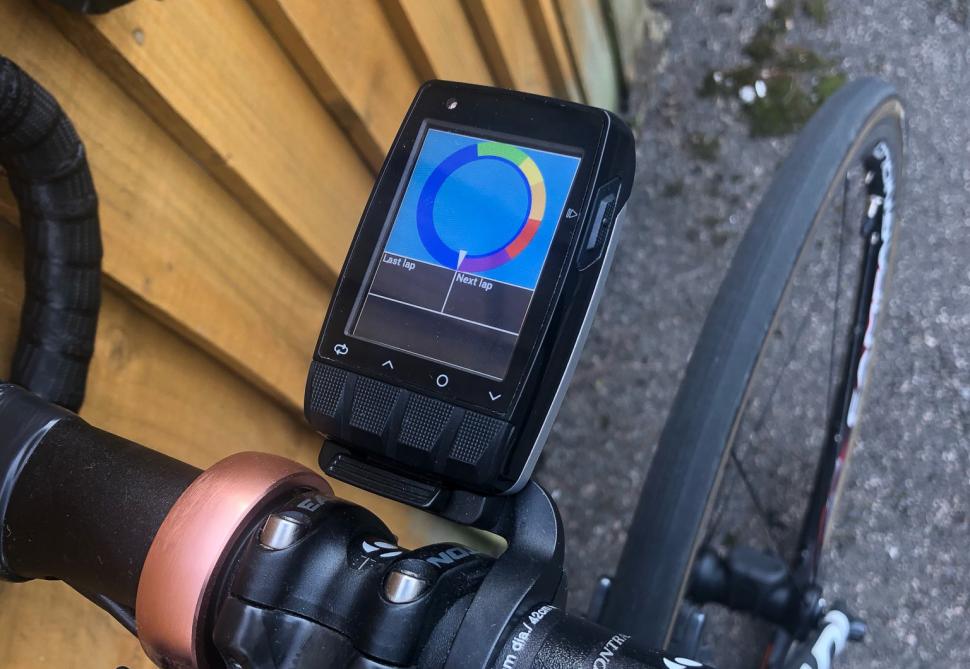
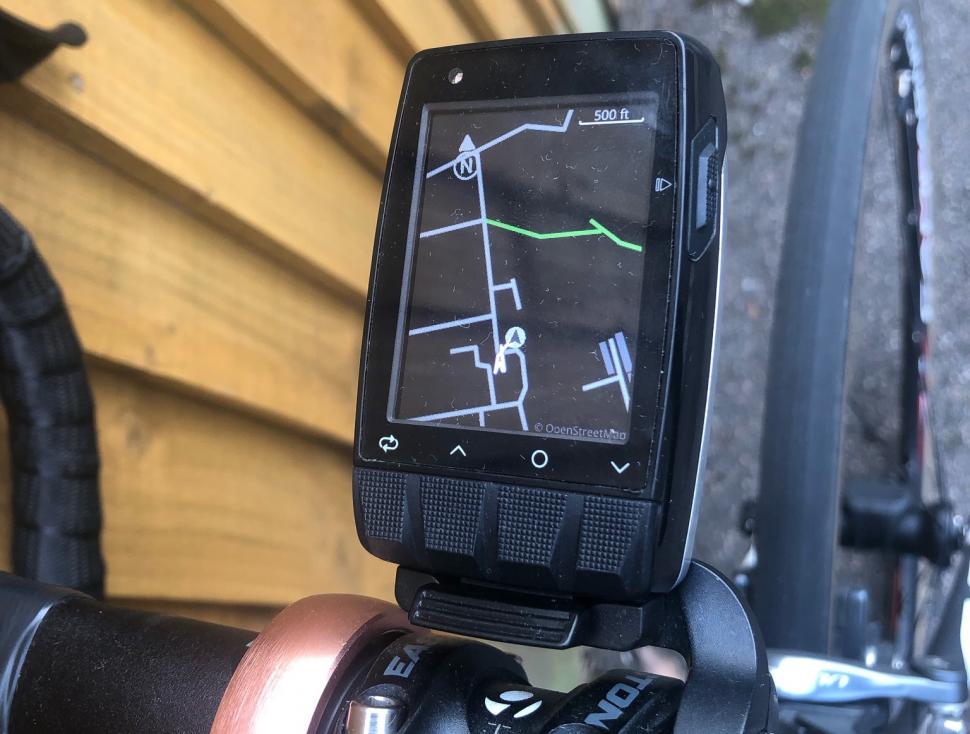

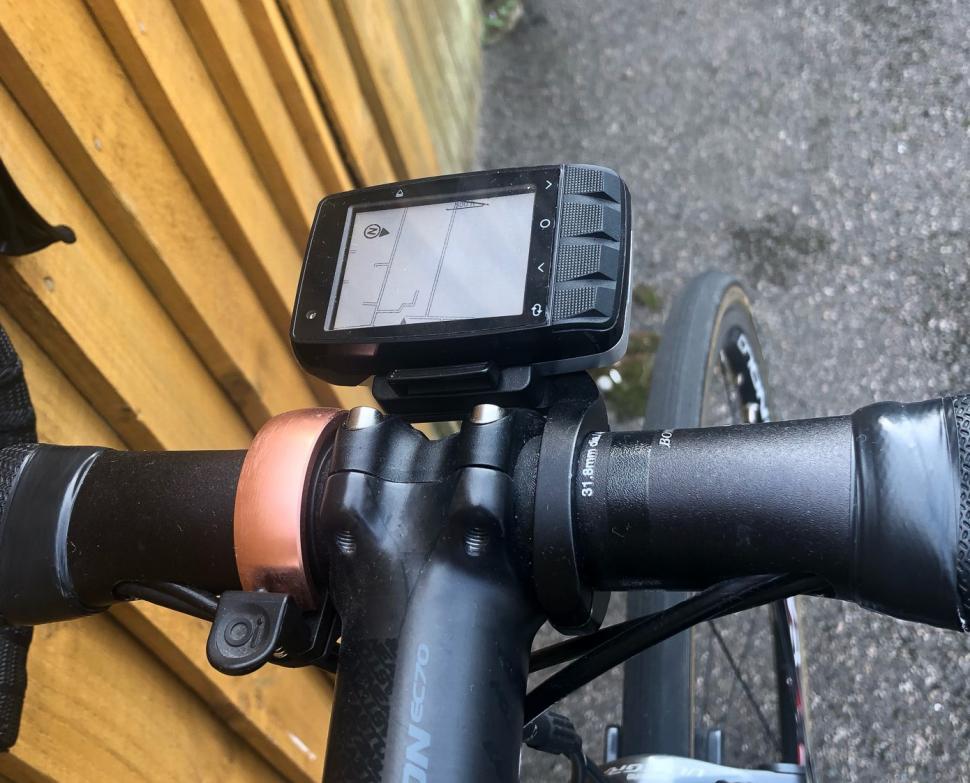

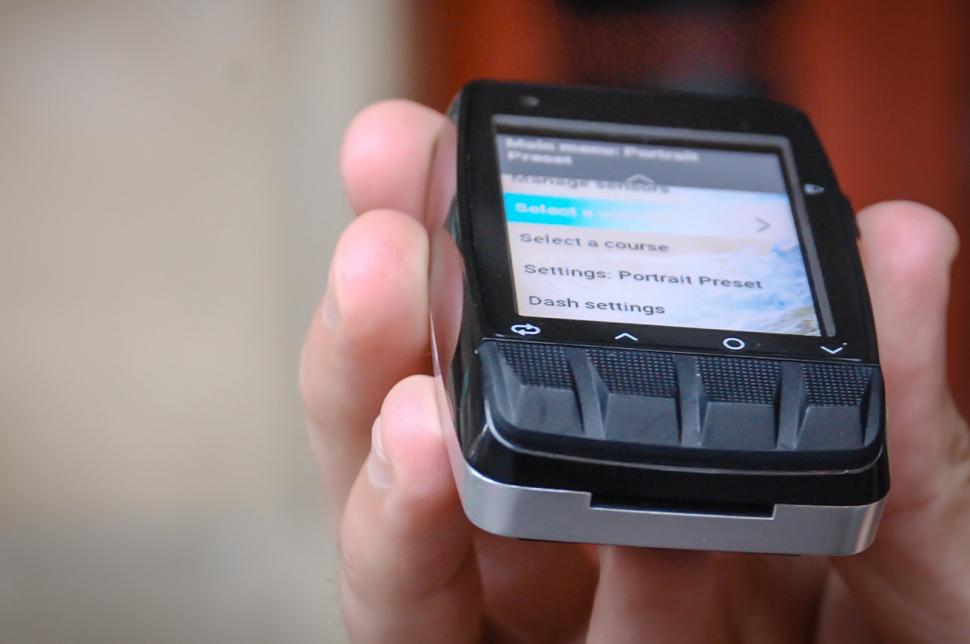
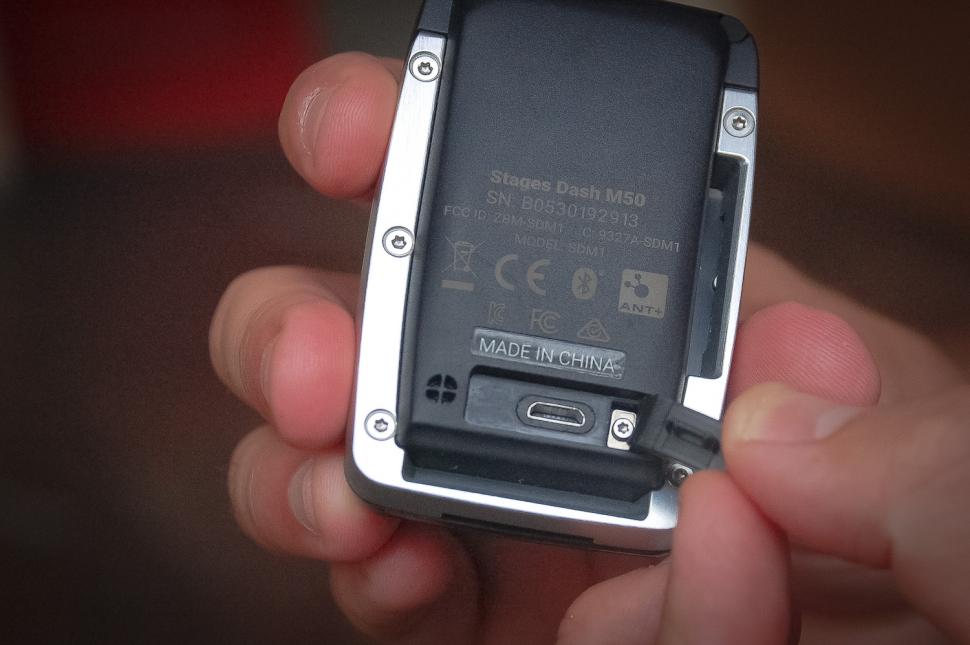
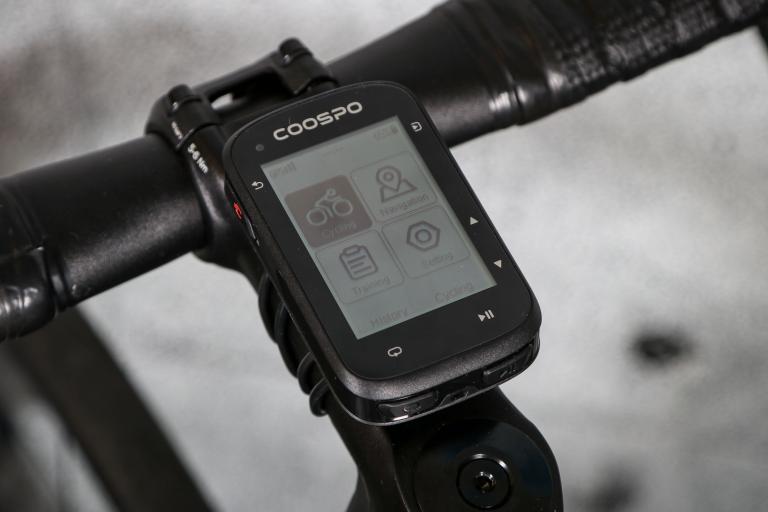
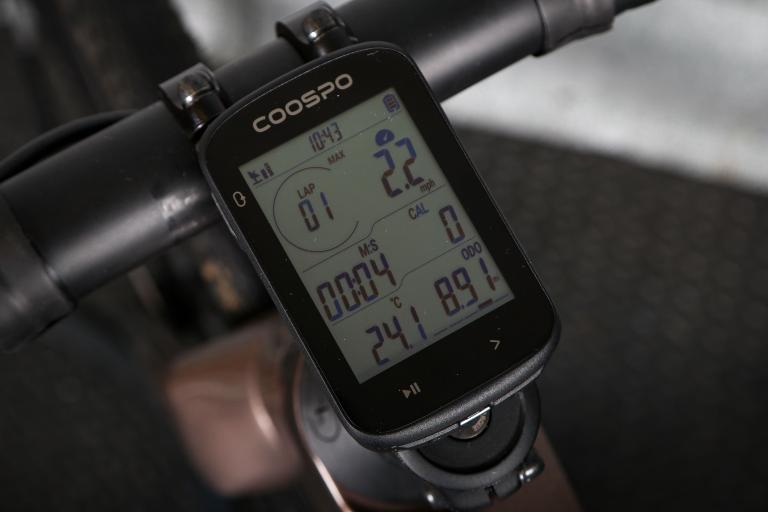
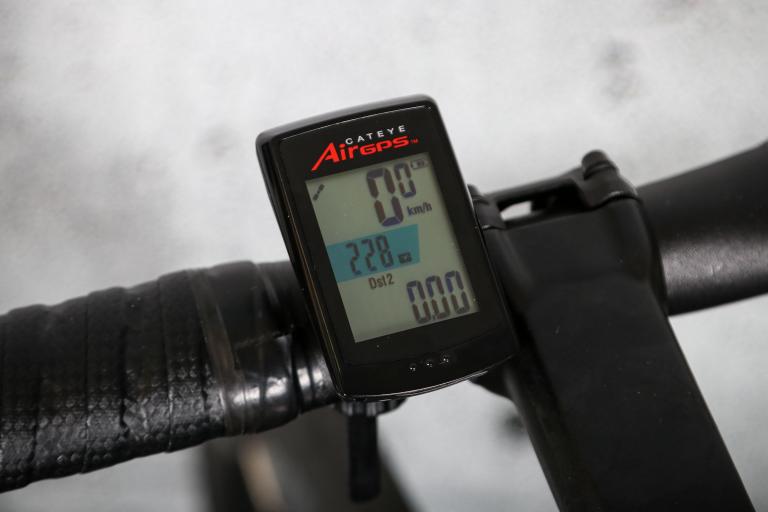
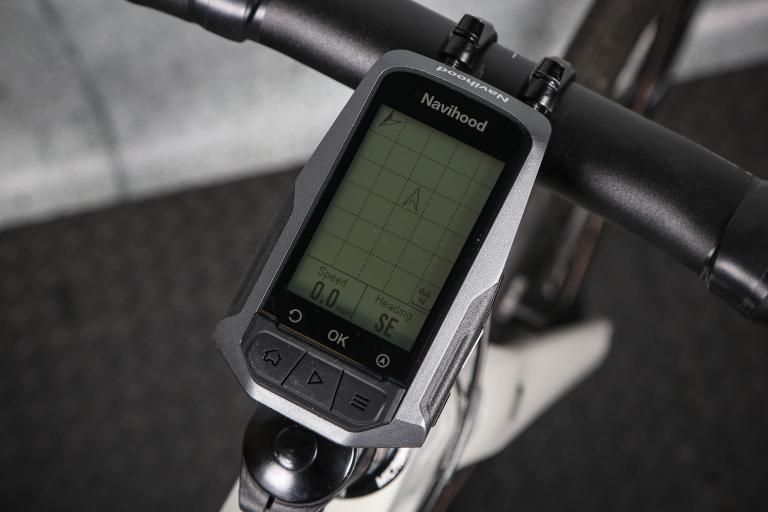
I agree on all points. In case you're wondering, this specific model runs a bit narrower than most other fizik SPD shoes that I've worn in the past...
These people making daft anti cycling comments don't seem to realise that the greatest danger on our roads come from the motorists, there are so...
Ultimately the problem is humans. That is amplified by "mass motoring" - but even "professional drivers" mess up and kill....
Over on weight_weenies there's 310 pages of discussion on Light Bicycle so have a look there.
It's a thing... https://www.amazon.co.uk/Pilot-Carbon-Look-Decorative-Adhesive-Carbon/dp...
Went past this just after it had happened, straight road, just after a mini roundabout with traffic calming all the way down the road......
I'm marten you down for that one.
These are new valves, recently picked up for a deep section set, the 75mm long ones. So I suppose the sealant could have already gunked up the...
Educate yourself bellend.
I expected Vine to be the leader at UAE and that cost me. Cameron Scott was a bad choice, I expected him to sprint for the Aussie Team....